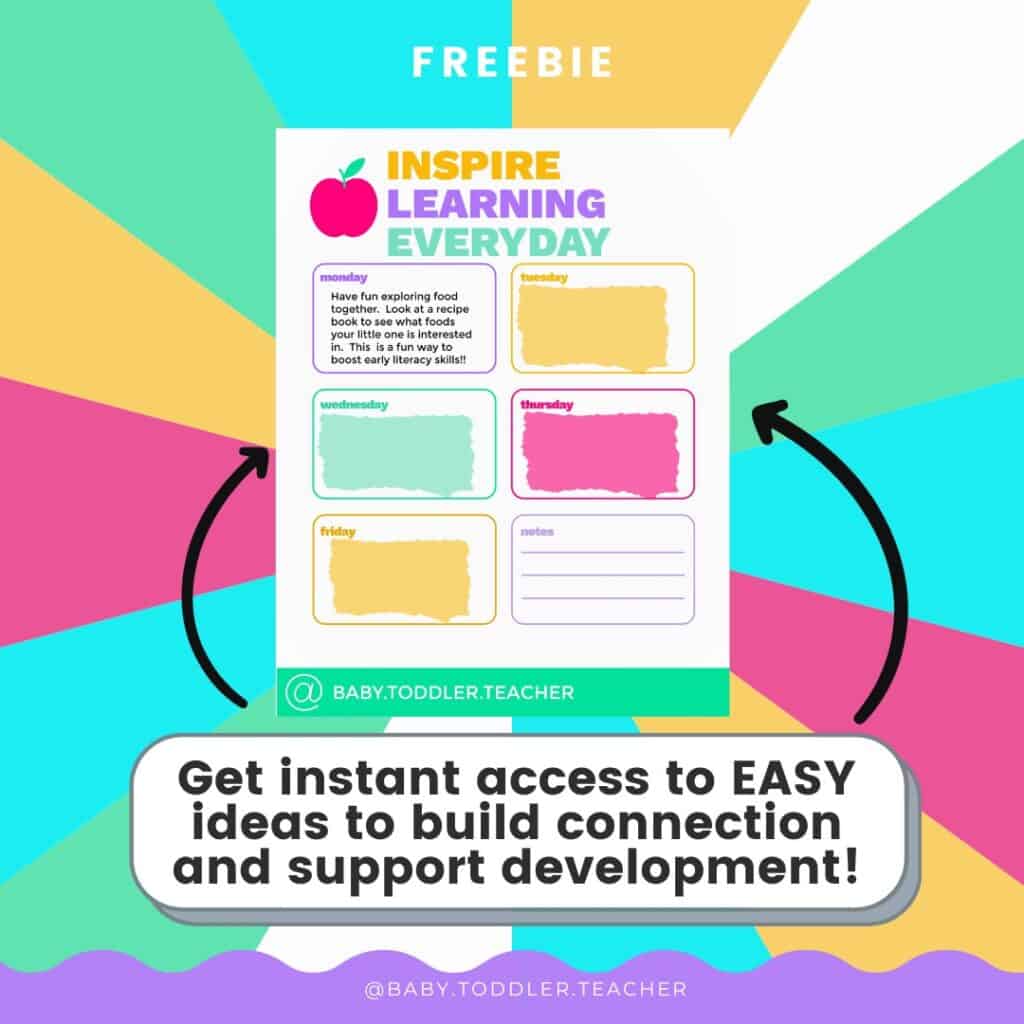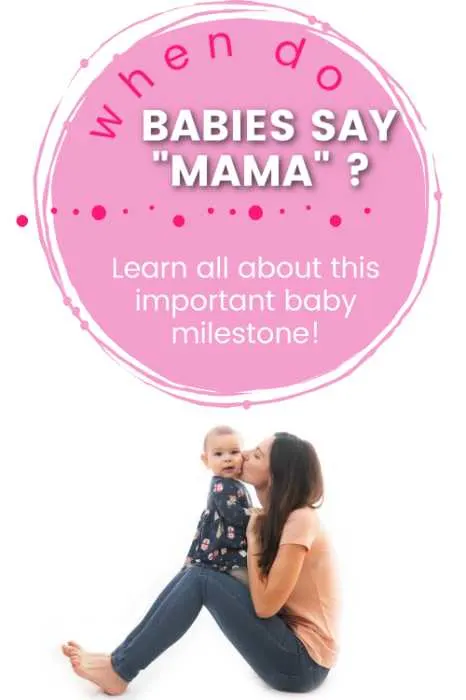
Are you waiting to hear your baby say “mama” or “dada”?
This is such an exciting time for parents as they wait to hear those first words!
It can be helpful to know what signs to look for so you can encourage your baby and help them learn how to say those first words.
In this article, I will share with you more about this important milestone as well as tips and tricks to help your baby say “mama” that I have learned after working for years as a developmental therapist in the birth to 3 population.
When do babies say “mama”?
Whenever looking at any developmental milestones it is important to keep in mind that all children are different and babies learn new skills on their own timeline.
If you ever have concerns about your baby’s language skills be sure to reach out to early intervention for a screening or evaluation.
Most babies, say “mama” or “dada” when they are about 8-12 months of age.
Some babies may even say their first words when they are younger, around 6-8 months or when they are older than 12 months.
Does just babbling these sounds count as actual words?
If you are hearing sounds like “mamama” or “dadadada” in their babbles just while they are playing we don’t count that has saying the word.
Keep reading though because I have a tip to get your little one to say “mama or dada” when they hit this baby language stage.
It only counts as a word if the meaning is tied to the word when they say it.
Helpful Strategies to Help Your Baby Say “mama”
There are a few strategies that I recommend to parents when they are working on these early words like mama or dada.
I am a big believer in finding ways to inspire learning throughout your day by embedding learning into the things that you already do.
This ensures that strategies are easy for parents to fit into their busy day and your little one will get lots of repetitive practice which is very important when babies start talking.
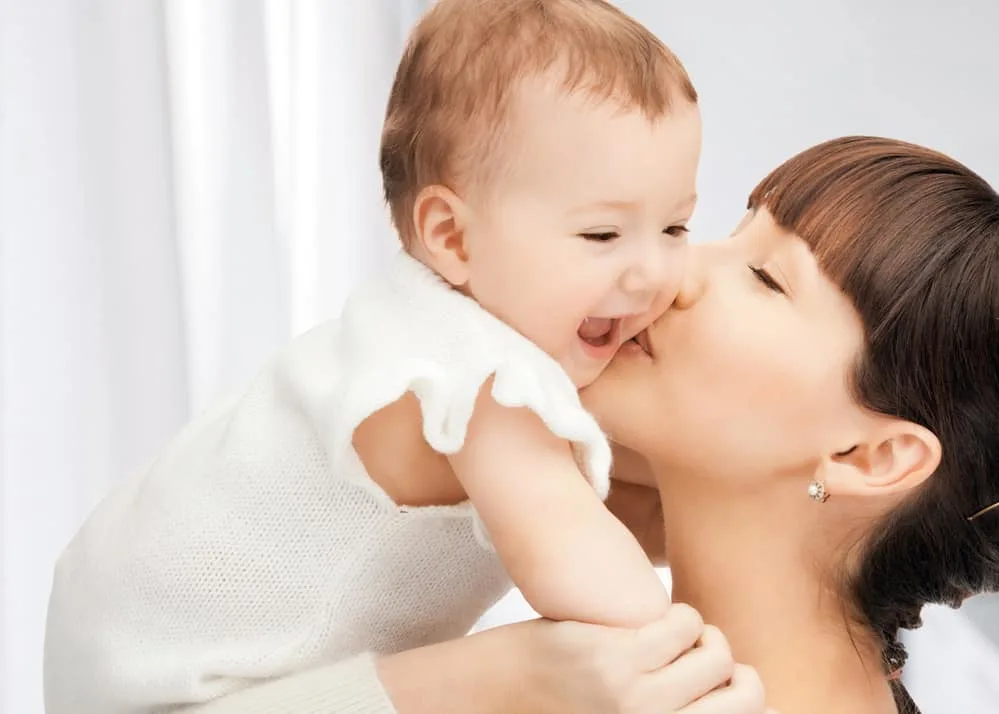
Emphasize “Mama’ or “Dada” During Daily Routines
It is very helpful when parents can take a moment to emphasize the words “mama” or “dada” when doing care routines throughout the day.
You can do this when you are doing daily routines like when you are changing your little one’s diaper, getting them dressed, getting their shoes on, and buckling them into the car seat.
For example, when it is meal time you could say something like “mama is getting your food!”
Play Peek a Boo Game
Playing peek-a-boo can be a great way to get your little one to learn “mama” or “dada.”
What makes it such a good tool is that little ones are much more motivated to watch and imitate when they are engaged and interested which is exactly what this social game does.
Instead of saying something like “where’s baby” say “where’s mama” and emphasize your name.
Build this quick game into your daily routines such as diaper changes by playing right before or after the diaper change to make sure that your child gets lots of repetitive practice.
I also LOVED playing this with my little ones while folding the laundry or getting them dressed.
Playing peek-a-boo is not only good for learning to say “mama” and “dada” but it also supports cognitive development.
Put “mama” and “dada” Into Songs
Singing songs is a wonderful strategy to use when you are trying to teach your baby new words.
It works well because songs are fun and interesting and they also have lots of repetitive practice built right in!
Have fun and get creative by adding “mama” or “dada” into different songs.
One of my favorite songs to work on this is “Daddy Finger”.
This one works on names for the whole family and you can switch out names as needed.
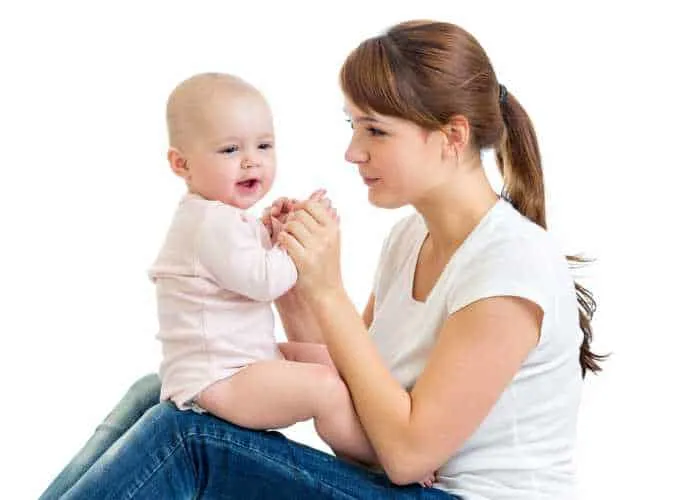
Wait…did they just say mama?
Every now and then your baby may babble the words “mama” unintentionally…but if you catch it…make sure you let them know you heard it!
Baby talk will change throughout the first months from throaty noises to babbles, screeches, and eventually words.
This vocal play is very important when it comes to language development.
If you catch them saying anything that sounds like “mama” simply emphasize it by pointing to yourself and repeating the word once again for them to hear.
Don’t feel like this is something that you have to do constantly!
Babies all need plenty of time to play independently without us leading or always responding.
When it comes to encouraging your child’s language development, balance is important!
Do babies say “mama” or “dada” first?
This is an interesting question!
The “D” sound may be easier for some little ones so for some kiddos “dada” maybe what comes first.
However, from my own observations as a parent and developmental therapist, I would say there are some other factors that may have an impact on what is said first.
If mom is the primary caregiver and with the child more often than dad it may simply come first because the baby may hear “mama” a lot and we know that repetition is very important when it comes to saying new words.
Both of my kids said “mama” first but I have also worked with families who have had the opposite happen!
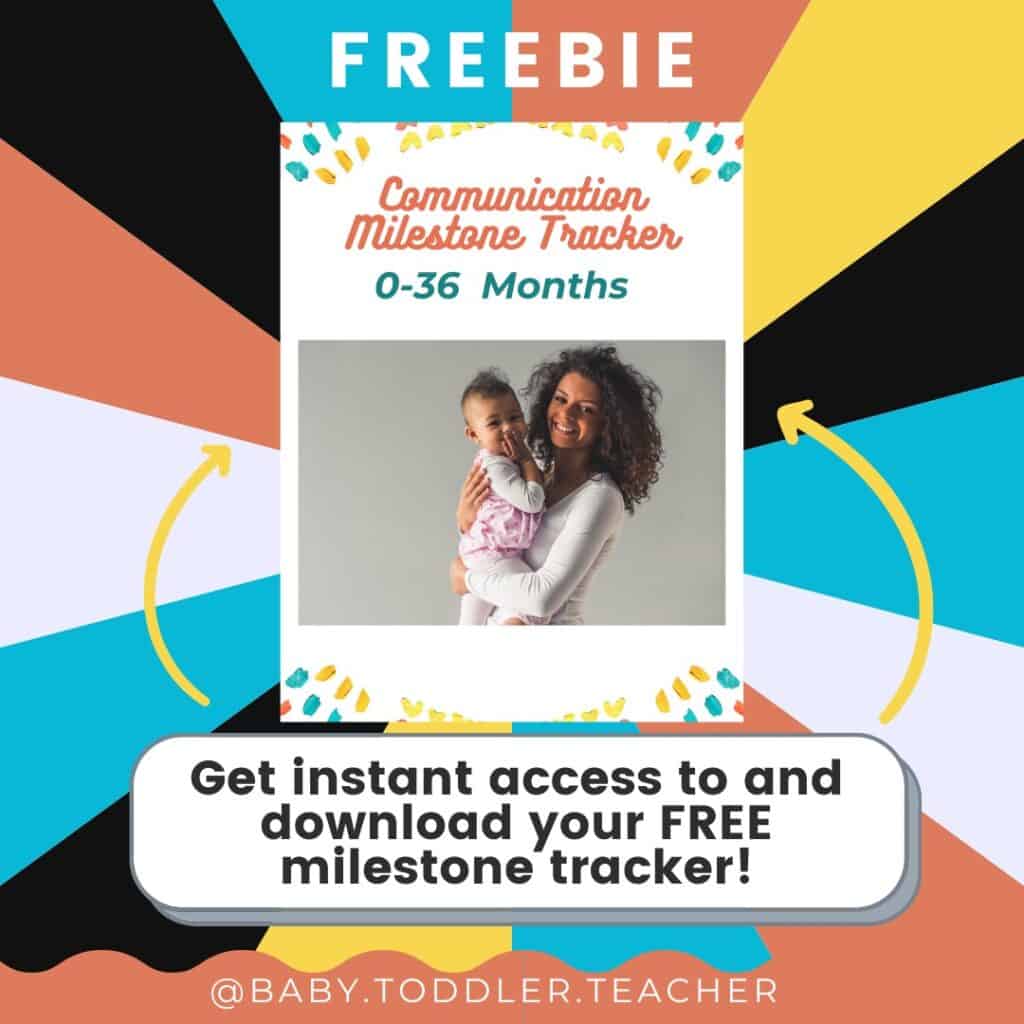
Enjoy this Exciting Developmental Milestone!
It is not always clear when babies say “mama” or when they are actually saying something else.
However, if you pay attention to their body language and other clues it should become more apparent when they want what they’re asking for.
It’s important to balance talking with your baby while giving them time to explore on their own as well. The best way to know when a baby says ‘mama’ is by paying close attention and considering all of the different possibilities that may be happening in front of you!
For more ideas on how to support language development make sure to check out my 1 Minute Communication Idea Cards for babies and toddlers. Get access to these idea cards as well as all of my resources when you sign up to be part of my community for Mindful Parents of Babies and Toddlers!
Frequently Asked Questions
mes! You can do this by playing simple social games, singing, embedding it into daily routines, or reading books as well.
It is usually around 8-12 months. Keep in mind all babies are different and if you have concerns about speech and language development make sure to contact early intervention for screening or evaluation.
correct label of the word that they are meaning. This will help your little one learn which words mean what and when to use them in different situations.
Related Posts You Will Enjoy
The Best Baby Floor Mats for Crawling
The Best Outdoor Activities for Babies
Baby Toys for Hand-Eye Coordination
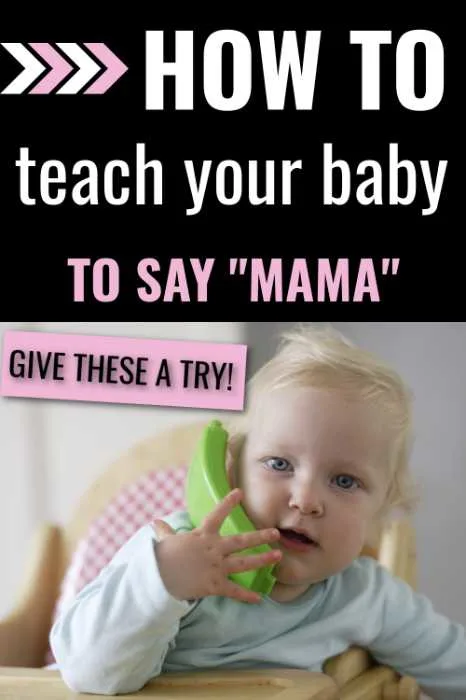
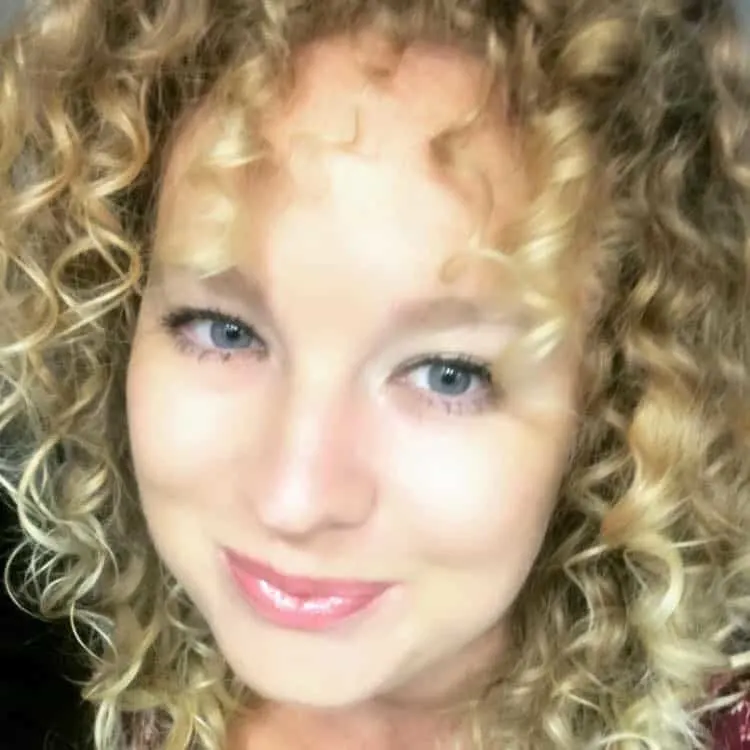
Kayla O’Neill has a master’s degree in education as well as a bachelor’s degree in special education with an emphasis in early childhood education. She has been working as a developmental therapist with babies and toddlers in early intervention since 2012. She is also a mom with two young children.
